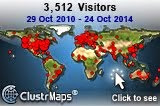Earlier this evening I went to a teach-in organized by the Orange County Democratic Party at the Southern Orange County Human Services Center. It sounds like more Lebanon discussion is going on at their blog,
orangedems.blogspot.com, and proposals we came up with will be discussed there. At noon the Womens' International League for Peace and Freedom and others held a one-hour protest in front of the post office on Franklin St. When I decided to go the the teach-in I didn't know it was organized by the DP. It was better than I feared, in that it was against Israeli aggression, but it also seemed too idealistic (such as that our policy should not be to maintain our standard of living) and I could see where conservatives would attack many proposals as pacifism (such as the example I just gave). The crowd filled a large room at the Center, maybe more than one hundred people participated. The crowd was mostly gray haired, but there were middle aged people and college, and maybe high school students. The crowd was almost all white, with a few Arabs or others as the main minority. The speakers were Sarah Shields (UNC), Akram Khater (NCSU), and Michael Hunt (UNC), with Jack (?) Sanders moderating. The program gives contact information for our reps, charities to give donations to, and the websites of several peace groups, such as UFPJ, CodePink, Global Exchange, Gush Shalom, WILPF , Peace Now, and Tikkun (but not ANSWER).
I arrived at about 7:40 and listened in after dropping off some papers and seeing the GRIM table. There was a police man or guard near the door. I arrived at the start of the question and answer session, just before Rep. Price was recognized and asked to speak briefly - which wasn't so short. His comments were just like his letters. He mentioned his ceasefire letter and didn't speak much about what Israel has done and he said nothing about Gaza (few people did, except for comments by a Palestinian man). He said he had concerns about the bill (like a Bush signing statement, someone said), but blamed the Republicans and still gave his approval by voting for it. He pointed out that he voted against a bill that would have cut off all aid to any Palestinian groups, as being too unbalanced. He said that it is unlikely the situation will be any better for a ceasefire in 3-4 weeks. He implied that stations like al-Jazeera are causing anger, even among US allies. Price wants an international force, to stop "threats by Hezbollah" and "external forces" - doesn't he mean Israel? He asked the panel why the "Cedar Revolution" wasn't talked about more and if it is "worth preserving." They said it started about a year ago and Bush just took credit for it, saying that he often does that. Price I think blamed Syria for the Hariri assassination and other events, but he might have criticized Bush's lack of engagement with Syria.
The crowd seemed to be against Price's position. A friend of mine in the DP was very angry about Price's vote and brought copies of H. Res 921. He can't understand why we keep Price and how he could vote this way. The Q&A went overtime and the moderator tried to cut it off but when asked the crowd voted to continue. The moderator said something like 'Thank you; let's go to the next question.' There was no talk of who started this (maybe I missed that).
About 8:50 he cut off the questions for the workshops and three tables stayed for discussion. My group ultimately had 10 people. They included what I suggested, except impeachment, partly because I suggested it too late and it didn't fit under foreign policy. I should have said end all aid to Israel, but instead I said military aid and that was accepted, though I mentioned the non-military, but occupation related, money we give them. The groups had similar suggestions, some more pacifist than others. I might post on this later, or you can read it at the OCDP blog.
Maybe the problem with all of this was that it ignored Hezbollah, or maybe it's just me. Price is pro-Israel, as some of the panel might be (I can't remember who said what on this). The participants condemned Israeli aggression (except for one person at the end who I think was trying to make it look like we were excusing Muslim fundamentalism), but it felt like something was missing. They didn't feel the need to blame both sides, but there was only talk of rights, not of the means to achieve this. Many didn't trust our government, but at the same time we were talking about influencing that government to negotiate. Will it do this in an honest way and what if Israel refuses? I think it is very valid to ask if we can or should focus on influencing our government by expecting them to listen, but there also aren't too many options in the short-term. After all, Price said he wants us to talk to him (questioned by a woman in my break out group), but he said he wants us to understand, not that he wants to understand us. I'll think about this and maybe I will have a better analysis later.
In other news: I heard GRIM got a $500 dollar contribution yesterday, it's largest yet!




